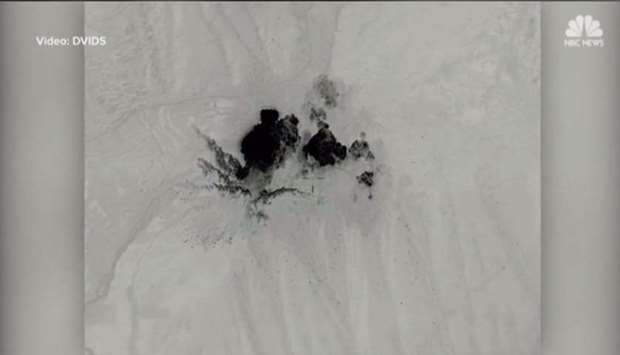US forces in Afghanistan have attacked networks of anti-China militants in an action that is likely to please Beijing, which had called for Western cooperation in its fight against a group it says wants to split off its Xinjiang region.
The strikes in the northern province of Badakhshan destroyed Taliban training camps which support militant operations in Afghanistan as well as operations by the East Turkestan Islamic Movement (ETIM) in the border region with China and Tajikistan, Afghanistan's NATO-led mission said in a release on Thursday."The US strikes support Afghanistan in reassuring its neighbours that it is not a safe sanctuary for terrorists who want to carry out cross-border operations," it said.
The force gave no more details about the attacks or any estimate of casualties but it said the ETIM was behind attacks both inside and outside China and two of its members had been involved in a 2002 plot to bomb the US Embassy in Kyrgyzstan.
"They pose a threat to China and enjoy support from the Taliban in Badakhshan and throughout the border region," the force said.
The group is drawn from members of China's mostly Muslim Uighur minority, who speak a Turkic language and live in Xinjiang in China's far west.
In Beijing, a Chinese foreign ministry spokesman said he did not have information about the issue, but that fighting ETIM was a "core counter-terrorism concern" for China.
"Striking against terrorism is the responsibility of all countries in the world," Geng Shuang told a news briefing on Friday.
In 2016, Beijing was angered at a US State Department report that said there was a lack of transparency or information from China about incidents it called terrorism, and that cooperation on the problem was limited.
The United States has since urged China to play a bigger role in combating global terrorism.
In the past, some Western countries have been reluctant to share intelligence with China on terrorism issues, citing concern about possible human rights abuses in Xinjiang.
China has long been worried that instability in Afghanistan could spill over into Xinjiang.
Hundreds of people have been killed in violence in recent years in Xinjiang. Beijing blames the bloodshed on Islamist militants and separatists, though rights groups say the unrest is more a reaction to repressive Chinese policies.
The United States, Britain and the United Nations have listed the ETIM as a terrorist group.

